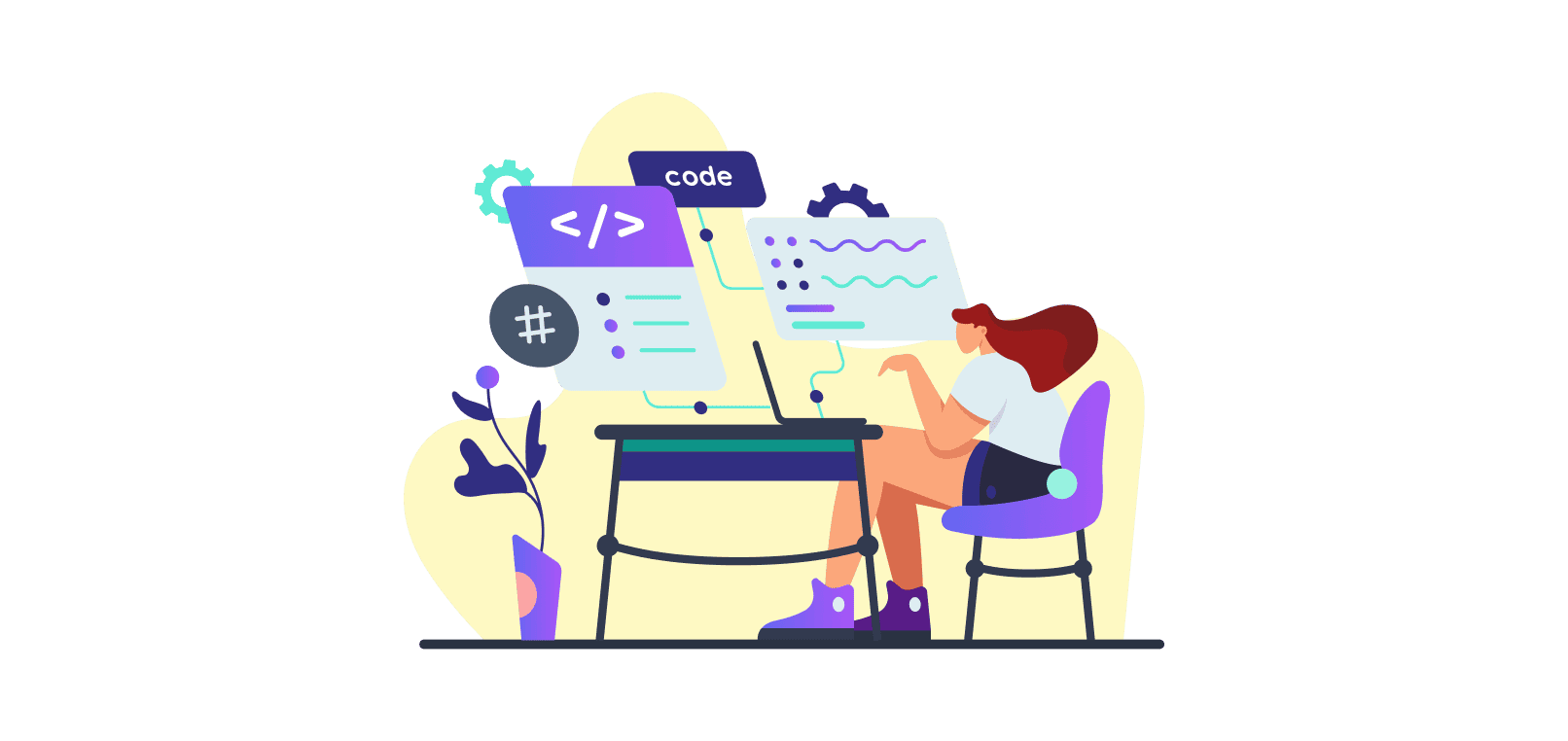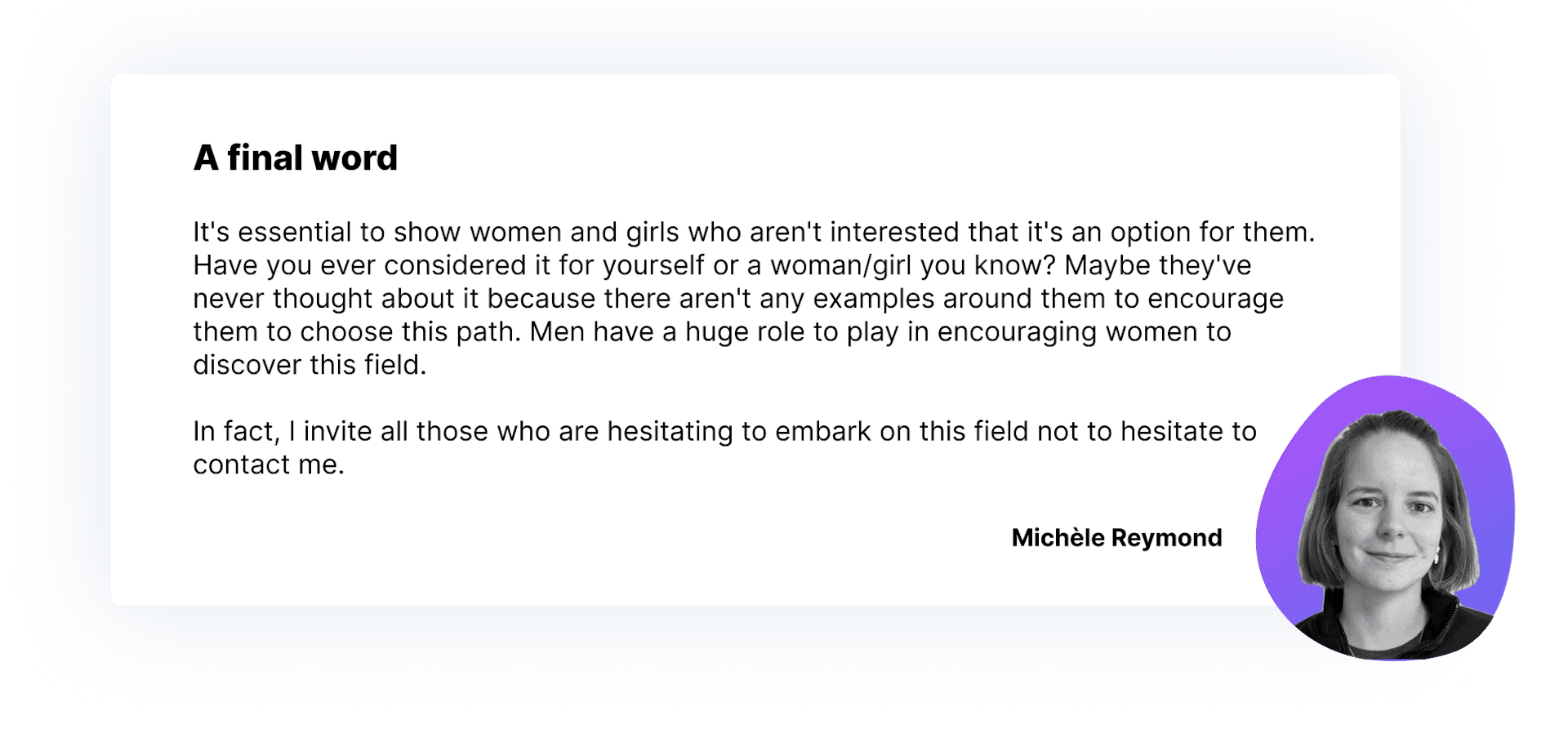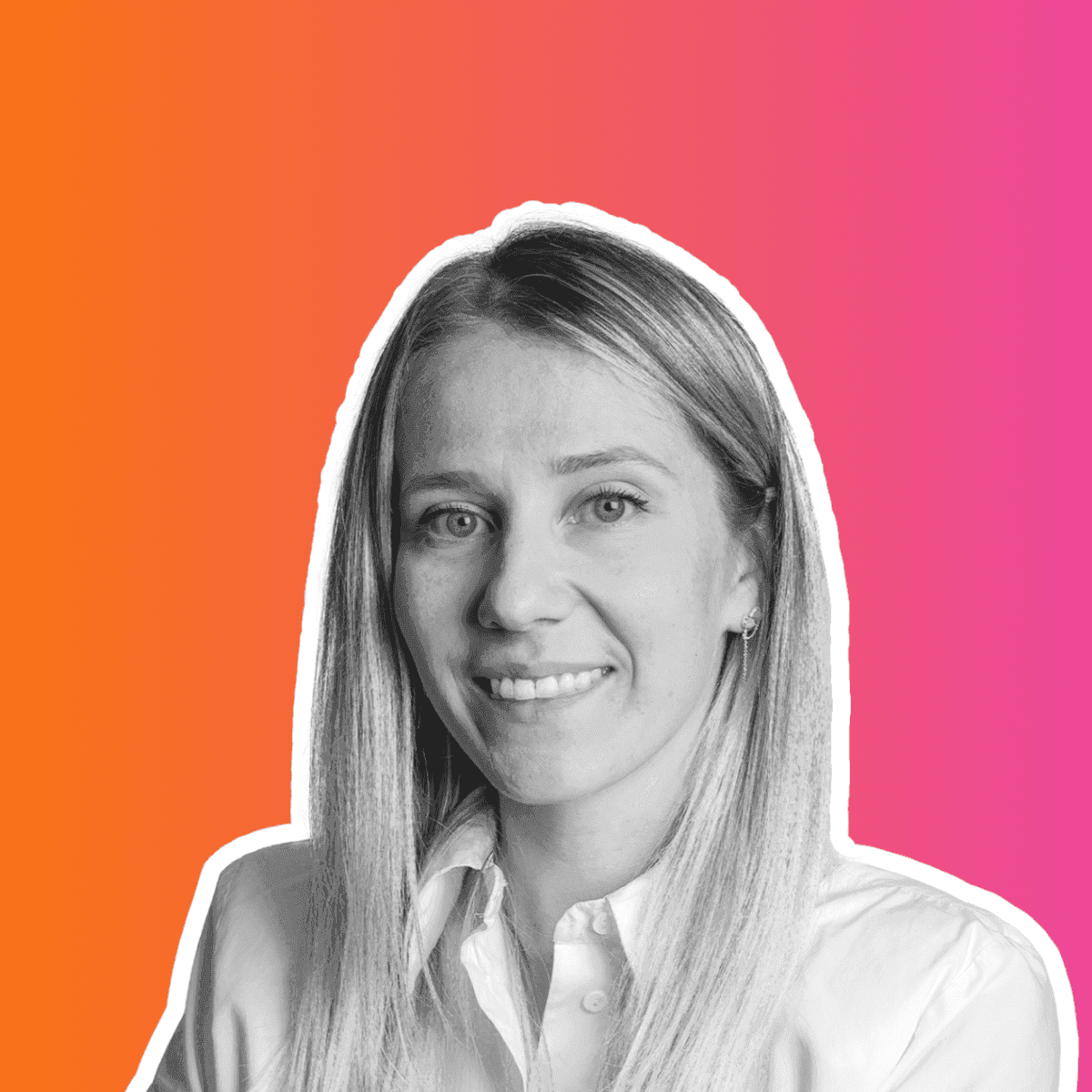To mark International Women's Day on March 8, we'd like to shine the spotlight on an inspirational figure in our company: web developer Michèle. Joining the team as an intern, Michèle quickly distinguished herself through her talent and passion, becoming a key member of our development team - a field often dominated by men. On this special day, we'd like to find out more about her unique career path and her experiences as a woman in the technology sector.

Personal and professional background :
Michèle, could you tell us a little about your background before joining WEDO?
I studied visual communication at the Bern University of the Arts, where I graduated with a Bachelor's degree in 2016. I then started my professional life as a graphic designer at an agency in Fribourg. Although this was a really fun and formative experience, I soon realized that printing wasn't my cup of tea. So I naturally headed for a digital communications agency where I had the chance to explore different areas that interested me, such as motion design, website creation, video and so on. The desire to train properly in the field of programming grew and so I enrolled in the Formation du Wagon in 2020 and then in the École 42 in Lausanne in 2021. After two years of intense training in this new kind of school, I have successfully completed the core curriculum. To validate this first part of our training, we have to do an internship with a company, and it was on this occasion that I landed at WEDO.
What were your first steps in web development?
To answer this question, we need to go back to the 90s. Back then, every teenager worth his salt had a little space for online expression: a skyblog. While I'm no exception to the rule, I found this platform far too limited, so at the tender age of 13, I took tutorials to learn how to create my own website using HTML, CSS and JavaScript. At the time, I was already drawing a lot and I was beginning to take an interest in all the creative tools available (photo and video editing, digital painting, etc.).
For me, the web simply became a new way of creating, and above all a way of sharing my creations in a space that suited me, rather than using a ready-made platform.
What motivated you to embark on an IT career?
It's a mixture of several things. First of all, as I enjoyed maths and IT at compulsory school, I always wondered what would have happened if I'd chosen to study IT instead of art school. I wanted to know if I could do it. Secondly, I think I have a great need to understand how things work. Creating designs for websites and collaborating with developers when I was a graphic designer made me want to understand what they were doing. And finally, doing this training was a good way for me to get involved in women's issues. I'd like to encourage women and all other gender minorities to take an interest in IT, because I'm convinced that this field is in great need of diversity.
Experiences as a woman in the technology sector:
In your computer school as well as in your previous posts, have you often been the only (or almost the only) woman?
I went from a predominantly female field to a predominantly male one. In art school, the classes were mostly represented by women. In the graphic design profession, I'd say the gender balance is pretty even. In IT school, on the other hand, the overwhelming majority of students are men. École 42 has a slightly higher percentage of women than traditional engineering schools (19%).
Have you encountered any specific challenges in this male-dominated field? Or, on the contrary, opportunities?
I think there are challenges above all, and that even the few "advantages" we may have as women, represent challenges. It's a fairly benevolent environment, and everyone wants a better gender balance. Of course, there are difficulties that everyone encounters when embarking on IT studies. But being a woman in a male-dominated field, when you're in the process of retraining and haven't been immersed in an IT culture, is a permanent and invisible battle against yourself. One of the main obstacles is the lack of role models. There are few women around us to whom we can look for inspiration, and we end up wondering whether we can do it (hello imposter syndrome). Few women grew up in an environment where they were encouraged to take an interest in IT. This creates a gap with those who have been immersed in it since childhood. Even if this is a gender-independent problem, I think that everything around us (films, TV series, people around us, etc.) gives us the impression that a woman will struggle in front of her computer and will have to ask for help from a man who knows all about IT. This leads to two problematic phenomena when it comes to training: 1. women don't dare ask for help to avoid participating in this cliché, and 2. men are more likely to ask women if they need help (hello savior syndrome).
Do you think this disparity in gender representation is problematic?
It's a theme I've come across frequently, and one that annoys me. "You're a woman, so you'll find it easier to get a job than me with quotas" or "She passed the school entrance exam just so there would be enough women in the statistics". First of all, no, it's not easier to pass the 42 entrance exam as a woman. But it's a question that has long made me doubt my abilities. And then for the question of quotas, it's a rather problematic principle, because companies that are absolutely determined to fill quotas for women will hire profiles to the detriment of skills, and this reinforces the idea that women are less capable of doing IT. I think the only real "advantage" of being a woman in tech is that most people support us. People in the industry are happy for you to take an interest. I really felt supported throughout my career.

Motivations and aspirations :
Where do you see your career in the future? Do you have any specific goals or aspirations?
That's a difficult question to answer at the moment. My main goal was to see if I could study IT, and now that I've done that, I'm not quite sure what the next step is. Over the last few years, I've prioritized my studies and put my artistic side to one side. I'm now realizing that I've missed out on it, so I'd like to find the right balance between the technical and the creative.
Perspectives on Programming and Technology :
What aspects of programming are you most passionate about?
I'm most interested in programming that gives a visual result. For example, the 42 project I was most passionate about was the one where we had to do raytracing, a program that calculates a 3D rendering. For each pixel in the image, you have to calculate whether there's an object, what color it is, whether there's a shadow, whether it's a mirror or transparent, and so on. For weeks on end, I was glued to my computer, feeling unstoppable. During my internship, I also noticed that if I can intervene in the visual aspects of WEDO, I do so with greater ease. My empathy enters into the process, asking myself how I can make the application more enjoyable for the user.
How do you see your role evolving in the ever-changing world of technology?
Indeed, technology is moving fast, and for me, it's important for women to be part of this evolution. We can't afford to miss out on these tools that are shaping the world. We need to be part of their development, to make them our own. AIs have barely arrived when they already have gender biases, because they are fed by data that deepens inequalities : “garbage in, garbage out”. I don't have a precise vision of how my role in all this will evolve, but I'd simply like to continue to be interested, and if I can motivate other women to take an interest, that's great!
Advice and inspiration :
What advice would you give to other women aspiring to enter the tech sector?
Go for it! You can do it, and you absolutely belong! There's no risk in taking the plunge, even if you've never had a passion for computers, if video games aren't your hobby, if you've never taken a computer apart, and so on. The tech world is vast, and you're bound to find something that piques your interest. If it's programming that particularly appeals to you, there are a multitude of languages and tools at your disposal. Faced with this abundance, it's normal to feel a little overwhelmed and undecided about where to start. My advice would be to select a programming language, whatever it may be, as a starting point to help you determine whether programming really is your passion.
Are there any female figures in technology who inspire you or have influenced you?
Of course there are! People think that IT has always been a male domain and that women haven't been interested in it, but that's not true. In fact, it's a field that's become more masculine, but it was basically 50/50. In fact, the first person to create a program was a woman: Ada Lovelace. After all, she invented the While loop! While the first computers were built by men, it was women who created the first software to run them. Then there's Hedy Lamarr, an actress who decided to help the war effort by inventing a missile guidance system, which was the basis for the invention of Wifi and GPS. Reading his biography really inspired (and annoyed) me. For a more contemporary example, I'd like to mention Isabelle Collet, a computer scientist whose conference on the influence of gender in IT I found very instructive and inspiring. Otherwise, in my close circle, the only woman I knew when I was younger who works in IT is a friend's mother, and I've always admired her for that. I think that now, all the women I know personally from near and far who are in tech, inspire me. Finally, I'm particularly saddened that in films, series, books, etc., there are so few female figures in technology. The most iconic character that inspired me was Abby from NCIS.
Thoughts on diversity and inclusion:
Why do you think it's important to have more diversity, especially gender diversity, in technology?
Last year, I read in the newspaper that they had, for the first time, done car crash tests with a female dummy. So about 120 years after its invention, we thought it would be nice to see if a female body reacted differently to a car crash than a male body, and therefore understand how to better protect it in the event of an accident. Apple's health app has long had no functionality linked to menstruation, even though this is an extremely important factor in women's health. For me, these examples are good reasons why diversity is absolutely essential in the teams that create these tools. Without diversity, we run the risk of creating tools that are not suitable for everyone. Diversity encourages us to think differently and be more creative. For example, we are fortunate at WEDO to have a color-blind person on the development team. This enables us to make practical and inclusive decisions when it comes to choosing colors for the interface.




